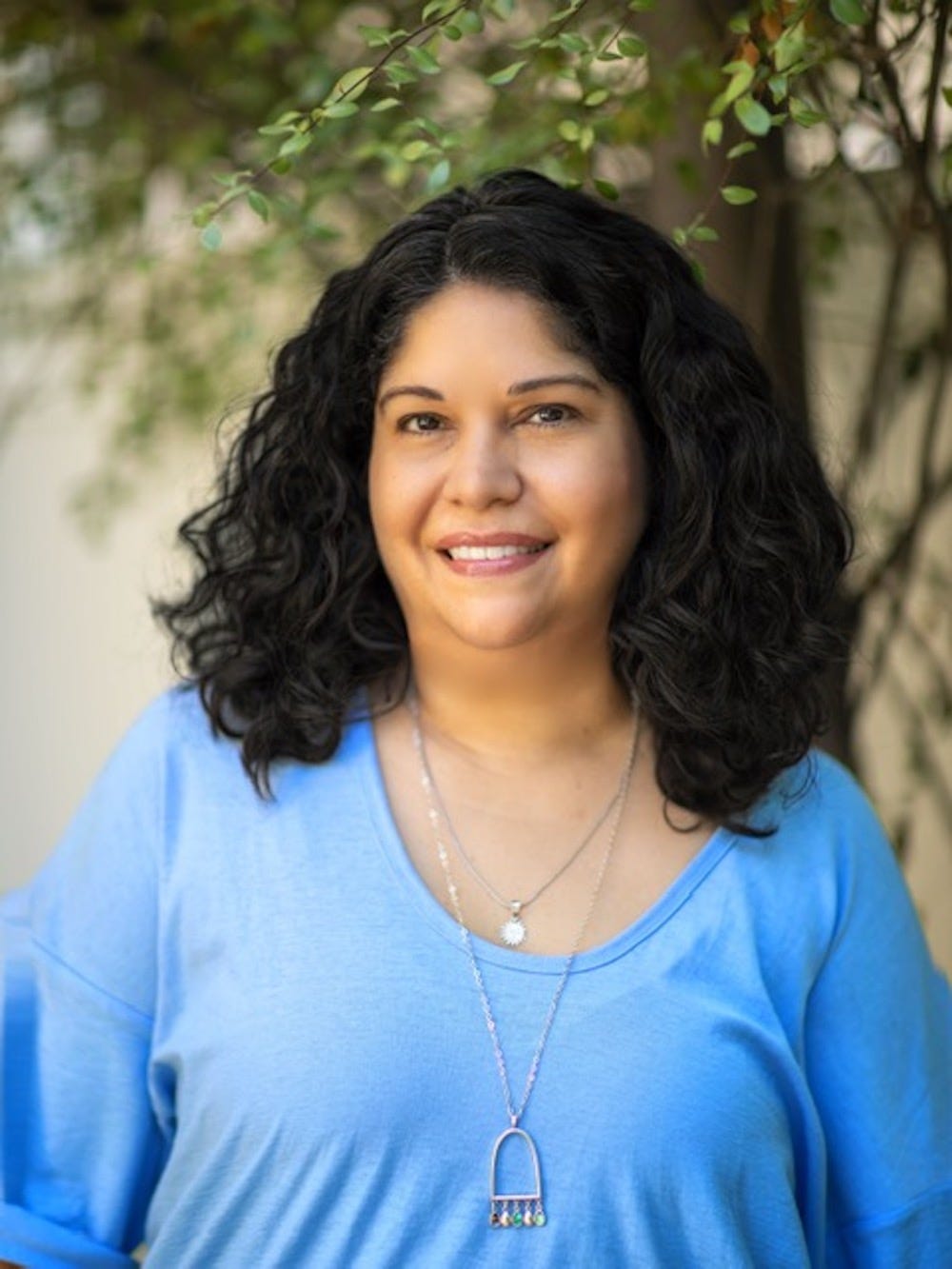An Interview With Candice Georgiadice

I see a tendency to do better than in the past. Be it through mindful choices like ethical sourcing, which has a less negative effect on the environment, or through helping others less fortunate, like we do with Wuitusu. Customers are demanding sustainable practices, and the fashion industry is responding. It is encouraging to encounter companies that try to better their artisans’ environments, use recyclable materials to create their products, or directly help a cause close to their hearts.
Many in the fashion industry have been making huge pivots in their business models. Many have turned away from the fast fashion trend. Many have been focusing on fashion that also makes a social impact. Many have turned to sustainable and ethical sourcing. Many have turned to hi tech manufacturing. Many have turned to subscription models. What are the other trends that we will see in the fashion industry? What does it take to lead a successful fashion brand today?
In our series called, “5 Things You Need To Lead a Successful Fashion Brand Today” we are talking to successful leaders of fashion brands who can talk about the Future of Fashion and the 5 things it takes to lead a successful fashion brand in our “new normal.”
As a part of this series I had the distinct pleasure of interviewing Lisset Verde.
L.A. fashion brand and storefront Wuitusu was founded in 2019 by Lisset Verde. Wuitusu specializes in high-end apparel and accessories handmade by the Colombia and Venezuela Wayuu tribe artisans. Currently, Wuitusu has two Los Angeles storefront locations: Santa Monica Place and Ovation Hollywood (formerly Hollywood & Highland).
Thank you so much for doing this with us! Before we dig in, our readers would like to get to know you a bit more. Can you tell us a bit about your childhood “backstory”?
I was born in Venezuela, in a working class family, and I had a very happy childhood surrounded by hundreds of relatives, and friends. I always loved reading: I’d prefer to stay in my room reading than go out. I loved reading about people in other countries and their cultures. One of the novels that influenced me was “Sobre la Misma Tierra” about the plights of the Wayuu people in my country. This was my first introduction to the Wayuu culture, and now that I work with them, I remember my childhood readings. I find it an honor to work alongside such an impressive culture where artisans can make a difference in their lives doing the crafts that have been practiced in their culture for centuries, and where women can make important decisions in their society as it is a matrilineal one. That information impressed me and made me wonder how it would be to live in a society like that.
Can you tell us the story about what led you to this particular career path?
I have always been interested in fashion, and about 5 years ago I fell in love with a Wayuu hat and bag I saw online. They were super expensive and I started researching about them. I figured out they were handmade by member of the Wayuu tribe, who live in Colombia and Venezuela, my birth country. I was a teacher at the time and a student of mine told me she had friends living close to Wayuu territory, and these friends could buy me one bag and one hat. After thinking about it, I asked these friends if they could buy me 13 hats and 13 bags (lucky number 13!) and I started selling them among friends and acquaintances. It is a pleasure for me to offer our customers gorgeous, one-of-a-kind handmade products that are not found everywhere, and we can offer them for a reasonable price.
Can you share the most interesting story that happened to you since you began your career?
I think the most interesting story that has happened to me since I began Wuitusu was having Patricia Velasquez, the President of The Wayuu Taya Foundation praise the work Wuitusu does. I had followed her career faithfully since she was a 90s supermodel and Hollywood actress, but especially the great labor she does with Wayuu Taya in favor of the most vulnerable members of the Wayuu people. So, her praise was just a dream come true.
You are a successful business leader. Which three character traits do you think were most instrumental to your success? Can you please share a story or example for each?
Self-awareness: I know my strengths and weaknesses — what I’m good at or can learn effectively, and what I am truly not good at. This self-knowledge makes it easy for me to ask for help and surround myself with people who know what I do not.
Curiosity: I love learning new things, skills, and about people and cultures. This openness has made it easier for me to understand and communicate with different people: old and young, and people from different countries. I can adapt easier than others to new places, and that’s why I made the USA my home.
Respect: I truly believe we need to respect everyone, no matter the social status, religion, skin color, or any other differences. My Wayuu partners, employees, and customers can feel that in our interactions, and that allows for better relationships.
What do you think makes your company stand out? Can you share a story?
I think Wuitusu stands out not only because we offer a beautiful, unique, and meaningful product, but also because each item is so different that it seems like it was made tailored for one person. I always tell the customer that they will know which one is the right bag, or hat, or clutch for them, because there is a special one for each person. If not, we can have it made for them. Besides the special products we sell, we also give back to the community. From the very beginning we have been faithful to our motto: “Beauty with a Conscience,” and we have made sure to support causes close to our hearts. Through “Helping Children in Venezuela” we help feed children in impoverished communities every Sunday, and through “The Wayuu Taya Foundation” our customers can help feed five Wayuu children with each $50 purchase.
Do you have a favorite “Life Lesson Quote”? Can you share a story of how that was relevant to you in your life?
“Never say no.” I have basically learned not to let my fears say no to opportunities that present themselves to me. I finished high school when I was 15 years old, and won a scholarship to study here, in the USA. I was so scared to come here, never having left my home country, and there were challenges, but it was one of the decisions that made me who I am now.
Ok, thank you for that. Let’s now jump to the primary focus of our interview. Do you see any fascinating developments emerging over the next few years in the fashion industry that you are excited about? Can you tell us about that?
I see a tendency to do better than in the past. Be it through mindful choices like ethical sourcing, which has a less negative effect on the environment, or through helping others less fortunate, like we do with Wuitusu. Customers are demanding sustainable practices, and the fashion industry is responding. It is encouraging to encounter companies that try to better their artisans’ environments, use recyclable materials to create their products, or directly help a cause close to their hearts.
Can you share how your brand is helping to bring goodness to the world?
I think Wuitusu brings goodness to this world in two ways. The fist way is that we are a slow fashion company. We value fair trade and honesty while we bring value to our customers in the form of a product they cannot find in many stores. We introduce them to a new culture that they did not know existed, in many cases.
Also, Wuitusu is always looking to help others less fortunate. We started partnering with “Helping Children in Venezuela” for which we have collected clothes, shoes, toys, medicine, and food through many fundraising events and drives. Then, we partnered with “The Wayuu Taya Foundation” through which our customers can help feed Wayuu children with the purchases they make in the stores and on our website.
Can you share with our readers about the ethical standards you use when you choose where to source materials?
We make sure to work only with members of the Wayuu tribe. Wayuu bags can be sourced from other countries where they are made and sold cheaper, but we consider Wayuu bags to be cultural heritage of the Wayuu people, an expression of the way they look at the world that surrounds them, so we make sure to purchase only from them.

Fast fashion has an advantage, that it is affordable for most people, but it also has the drawback that it does not last very long and is therefore not very sustainable. What are your thoughts about this? How does your company address this question?
Wuitusu teaches customers the importance of a Wayuu product: that it reflects the viewpoint of Wayuu artisans, their traditions, dreams, and how they view the world that surrounds them. We also explain the amount of time each item takes to be made, in some cases months. We hope they care for and love their purchase because these are items that can last a long time, and they can even be passed onto the next generation.
Thank you for all that. Here is the main question of our interview. What are your “5 Things You Need To Lead a Successful Fashion Brand”. Please share a story or example for each.
Know your customer: who they are and what they want.
Know your product, your vendors, and your limitations.
Know your numbers: know your costs and the price customers are willing to pay.
Be resourceful: be able to mitigate the problems you encounter with practical solutions.
Pray that luck will be on your side.
Every industry constantly evolves and seeks improvement. How do you think the fashion industry can improve itself? Can you give an example?
Many companies in the fashion industry are under pressure to cut costs, which leads the industry towards producing in low-cost countries under poor conditions, even at times forcing children to work. Nowadays, customers are more and more conscious about all these production processes. They are penalizing those companies that are relentlessly pushing down costs, even by unethical means. Customers are seeking meaningful products that are made ethically. They want the industry to support ethical measures, not exploitative ones.
You are a person of great influence. If you could start a movement that would bring the most amount of good to the most amount of people, what would that be? You never know what your idea can trigger. 🙂
I would tell people to make “purchases that do good” either buying from small businesses because it is known they help support their communities, or from small companies that help protect the environment, or directly help the communities that make their products, like Wuitusu does.
Thank you for these fantastic insights. We greatly appreciate the time you spent on this. How can our readers further follow your work online?
https://www.facebook.com/wuitusu
Thank you for these fantastic insights. We greatly appreciate the time you spent on this.
Modern Fashion: Lisset Verde On The 5 Things You Need To Lead a Successful Fashion Brand Today was originally published in Authority Magazine on Medium, where people are continuing the conversation by highlighting and responding to this story.

